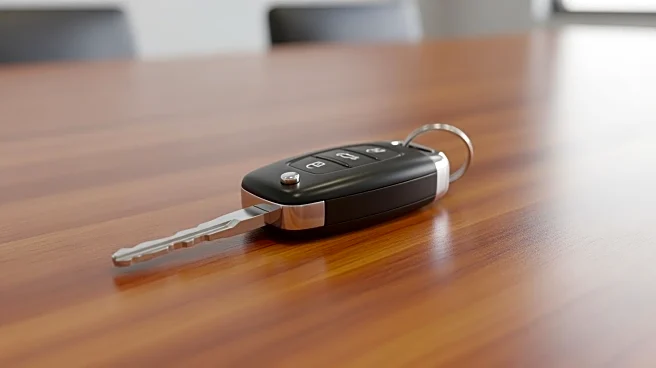What's Happening?
Volvo cars, renowned for their safety innovations, have been evaluated by Consumer Reports for reliability and maintenance costs. Historically, Volvo has produced durable vehicles, such as the 1966 Volvo P1800,
which set a Guinness World Record for mileage. However, recent assessments indicate that most new Volvos rate average or lower for predicted reliability, placing Volvo at No. 15 in Consumer Reports' 2025 list for new-car reliability. Despite this, Volvo ranks No. 7 in used car reliability. The XC60 crossover remains Volvo's best-selling model, with high reliability scores for brakes, climate systems, and body hardware. However, Volvo's maintenance and repair costs are ranked 24th out of 28 brands. Several models, including the XC90 and XC60 Plug-in Hybrid, are recommended by Consumer Reports, although they have faced recalls for issues such as malfunctioning backup cameras and faulty brakes.
Why It's Important?
The evaluation of Volvo's reliability and maintenance costs is significant for consumers and the automotive industry. Volvo's historical reputation for durability and safety is challenged by current reliability ratings, which may influence consumer purchasing decisions. The brand's position in maintenance costs could affect its competitiveness in the market, as consumers weigh long-term ownership costs. The recalls associated with several models highlight potential safety concerns, impacting consumer trust and brand reputation. Volvo's standing in used car reliability suggests potential value for consumers seeking pre-owned vehicles, which could affect the used car market dynamics.
What's Next?
Volvo may need to address the reliability issues highlighted by Consumer Reports to maintain its market position and consumer trust. The company could focus on improving the reliability of new models and reducing maintenance costs to enhance competitiveness. Addressing recall issues promptly will be crucial to ensuring customer safety and satisfaction. As Volvo continues to innovate, particularly with hybrid models like the XC60 Plug-in Hybrid, it may explore further advancements in technology and efficiency to attract environmentally conscious consumers. The automotive industry will likely monitor Volvo's response to these evaluations and its impact on sales and brand perception.
Beyond the Headlines
The reliability and maintenance evaluations of Volvo cars may have broader implications for the automotive industry, particularly in the context of evolving consumer expectations for safety and efficiency. As hybrid and electric vehicles gain popularity, Volvo's focus on these models could align with industry trends towards sustainability. The recalls and reliability issues may prompt discussions on manufacturing standards and quality control within the industry. Additionally, Volvo's historical reputation for durability may influence its strategic decisions in branding and marketing, as it seeks to balance legacy with innovation.









